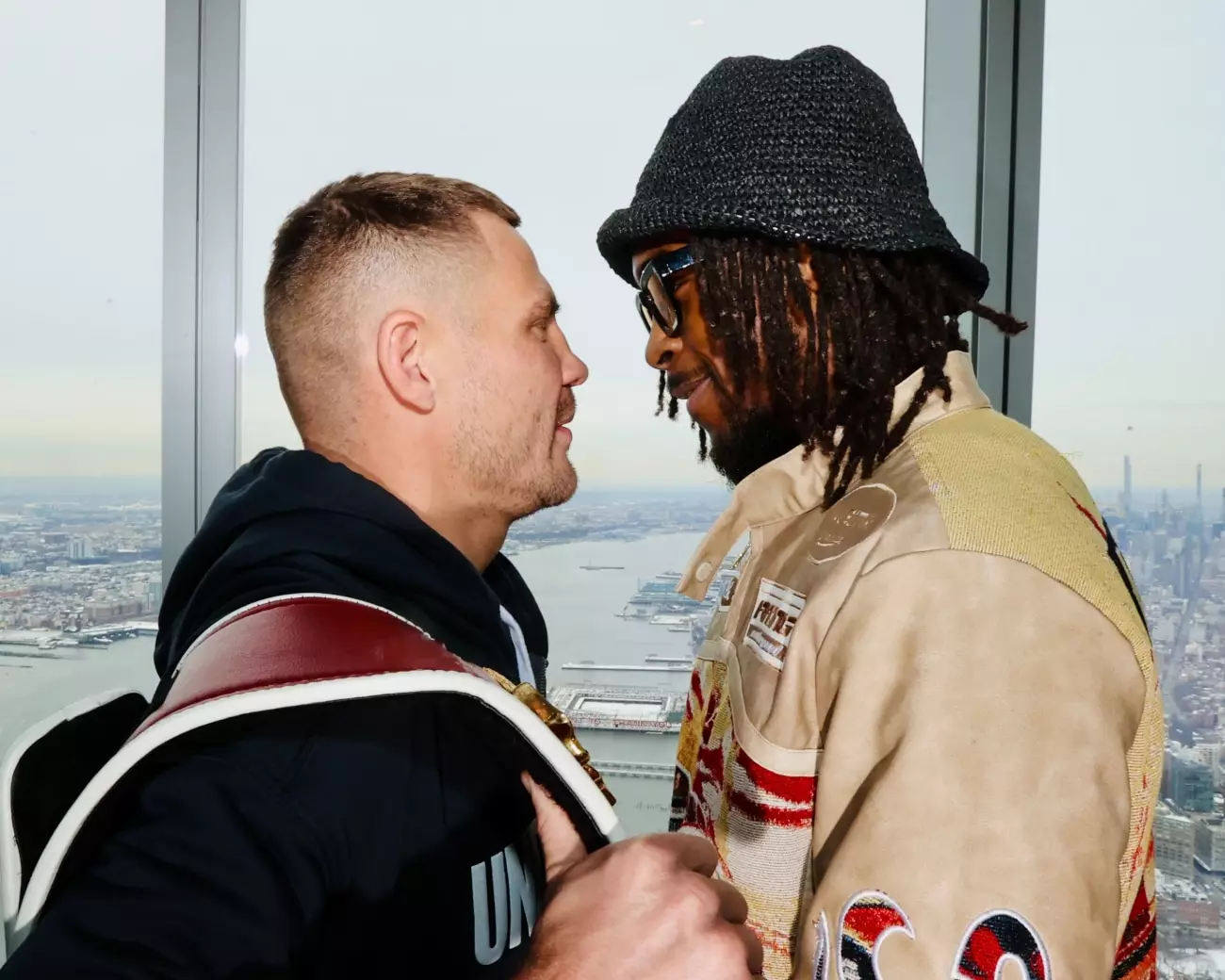In the world of professional boxing, the anticipation surrounding a title fight often comes with an underlying current of rivalry and emotion. This was evident during the recent face-off between Keyshawn Davis, an emerging talent, and the reigning WBO lightweight champion Denys Berinchyk. Their intense encounter, which unfolded ahead of their February 14 match at Madison Square Garden Theater, serves as a telling example of how personal dynamics can influence the narrative of a boxing event.
The tension escalated when Davis, who boasts an impressive record of 12 wins with 8 knockouts, provocatively snatched Berinchyk’s championship belt, declaring, “This is going to be mine.” Such actions are not uncommon in combat sports, where psychological warfare is just as critical as physical prowess. However, the manner in which Davis chose to approach Berinchyk was laden with implications. By grabbing the belt and making threats—specifically his intention to ‘whip [Berinchyk’s] a**’—Davis crossed a line that many fighters know should be approached with caution. This was not merely an act of bravado; it was a blatant display of disrespect that incited Berinchyk’s anger, pushing the boundaries of sportsmanship.
As the confrontation intensified, Berinchyk’s demeanor shifted from a composed champion to one that reflected pure fury; his polite smile faded as he reacted to what he perceived as an insult to his character. It was a moment that illustrated the fine line fighters walk between confidence and recklessness, prompting security personnel to intervene to prevent a physical altercation that could overshadow the fight itself.
Keyshawn Davis also made headlines with his remarks about renowned boxer Gervonta Davis, utilizing the name of the established fighter as a means of garnering attention and asserting his own potential. He noted, “People don’t know how good I really am,” suggesting that many fans have yet to see what he is capable of. This tactic of invoking a more experienced boxer’s name serves a dual purpose: it raises Davis’ profile while also positioning him as a challenger with aspirations of greatness.
While there is merit in building intrigue before a fight, it raises questions about Davis’s focus on Berinchyk as an opponent. His comments leaned heavily toward Gervonta rather than addressing the significant challenge posed by Berinchyk. This approach could be seen as irresponsible or overly confident, especially given that Berinchyk is a seasoned champion who is unlikely to be overlooked. The focus on external comparisons rather than internal self-examination might come back to haunt Davis if he isn’t adequately prepared for the test ahead.
As the fight draws near, Davis has not shied away from making bold predictions, confidently stating, “Expect the unexpected,” with an expectation of a first-round knockout. Such confidence can be an asset in boxing, fueling performance and strategy; however, it can quickly morph into pressure if the anticipated outcome doesn’t materialize. The potential psychological toll of living up to these declarations adds another layer of complexity to the contest.
Moreover, Davis’ mention of his younger brother, Keon Davis, joining him on the undercard serves to highlight the family aspect of boxing, fostering a narrative of legacy and continuity. This echoes the far-reaching implications of personal and familial connections in sports, adding depth to Davis’ character as a fighter not only seeking personal glory but also a shared success with his sibling.
As February 14 approaches, the excitement surrounding this high-stakes encounter is palpable. The convergence of athleticism, drama, and personal rivalry encapsulated within a boxing ring promises an event that transcends a typical fight night. Ultimately, the dynamics between fighters create a narrative that captivates audiences, amplifying the stakes involved as they clash for supremacy in the squared circle.

